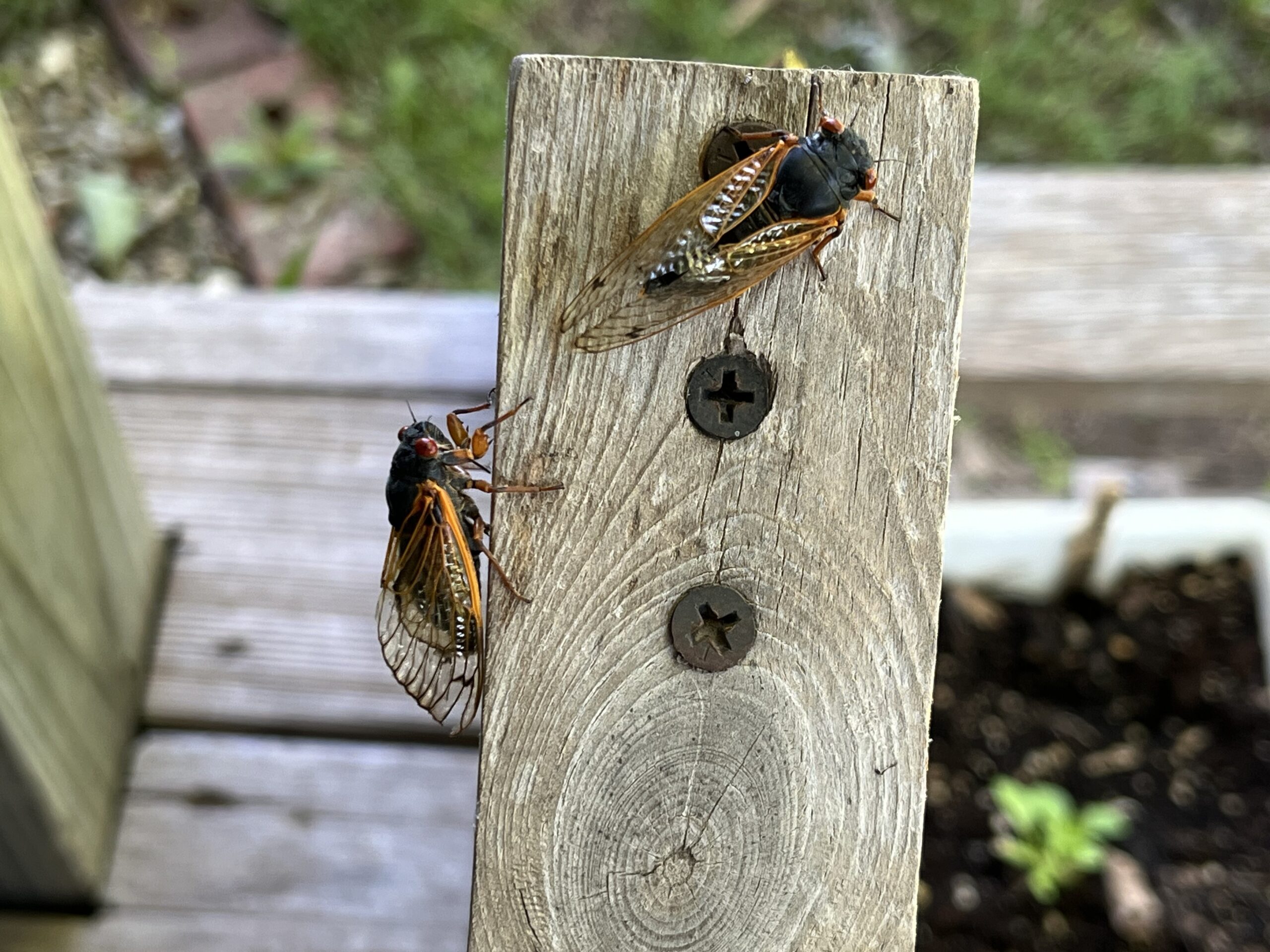The Hort Report: Those noisy cicadas are good for bird food, fish bait and aerating soil

The noise from all the cicadas has been very loud the past few days. They showed up earlier this year and have been busy making noise since.
Males make noise to attract females. They mate and the females go and lay their eggs in tree bark and branches. Six to 10 weeks later, the eggs hatch and the nymphs fall to the ground and begin to tunnel into the soil. They spend the next two to 17 years underground. The nymphs begin eating small plant roots and sucking tree sap. As they grow, they begin to eat tree roots.
The nymphs help the environment. They move several inches below the soil and help aerate the soil, allowing more air and water movement in the soil.
Cicada adults and nymphs provide food for birds. They make great fishbait, too. As they die, they become compost and help fertilize the soil.
Cicadas and the nymphs they produce can be helpful to the environment, but the noise they make isn’t good for your ears.
An adult in my South Shelby Adult Vo-Ag Horticulture Class asked me how to keep cicadas under control. You fight the cicadas by using a form of insecticide. Sevin is easy to use. You can spray the grass, leaves, trees, shrubs and bushes with liquid Sevin. You can use Sevin dust, too.
I treated the soil for Japanese Beatles a few years ago. This might have killed some of the cicada nymphs too. I didn’t notice cicada shells on my apple trees the past few weeks, so I guess the insecticide worked.
You might not be able to spray all the cicadas, but if you are spraying the soil, you will kill off the Cicada nymphs. The insecticide will kill the Cicadas and nymphs wherever they are. As you are using any type of insecticide, realize that you are not only killing harmful insects but beneficial insects, too. Be careful when using any type of insecticide.
You can also hand-pick the cicadas off trees, shrubs, bushes and anywhere else you see them. Use them for fishbait or bird food once you kill them.
People have been covering their trees, bushes and shrubs with netting about ¼-inch or smaller openings in them. This will help to keep the female cicadas from laying their eggs in the trees, shrubs and bushes.
I have read that people will use tar and paint the tree trunks with it. Cicadas will get stuck on the tar and be easy to pick off the tree trunks.
Another thing you can do is to put out a mixture of vinegar and peppermint. You can leave this in pans around trees, shrubs and bushes. Cicadas don’t like the smell and will move on to another place, but this mixture won’t kill them.
I had a neighbor ask why his trees were starting to drop their leaves early. They appeared to have spots on them.
These trees have what is called anthracnose. It is a common form of fungal disease that affects sycamore trees more than other types of trees. Maple, ash and oak trees also can be affected by anthracnose. The disease is more severe when we have wet, cool spring weather. We did have some of that type of weather earlier this year.
For prune-infected limbs and branches, spray a fungicide on the trees. Over time, new leaves will start to form and grow.
Thanks for all your questions. I appreciate them and look forward to them in the future. Call me at 573-588-2040 or come visit me at Shelby County Implement in Shelbina, Mo. Email me at sci63468@hotmail.com or go to Facebook and find Greenwell’s Greenhouse Group.

Pat Greenwell is the owner of Shelby County Implement in Shelbina, Mo. He was a high school agriculture teacher for 11 years. He has taught adult vocational agriculture since 1987. He also is a research assistant at the Truman State University Ag Department Farm.
Miss Clipping Out Stories to Save for Later?
Click the Purchase Story button below to order a print of this story. We will print it for you on matte photo paper to keep forever.

